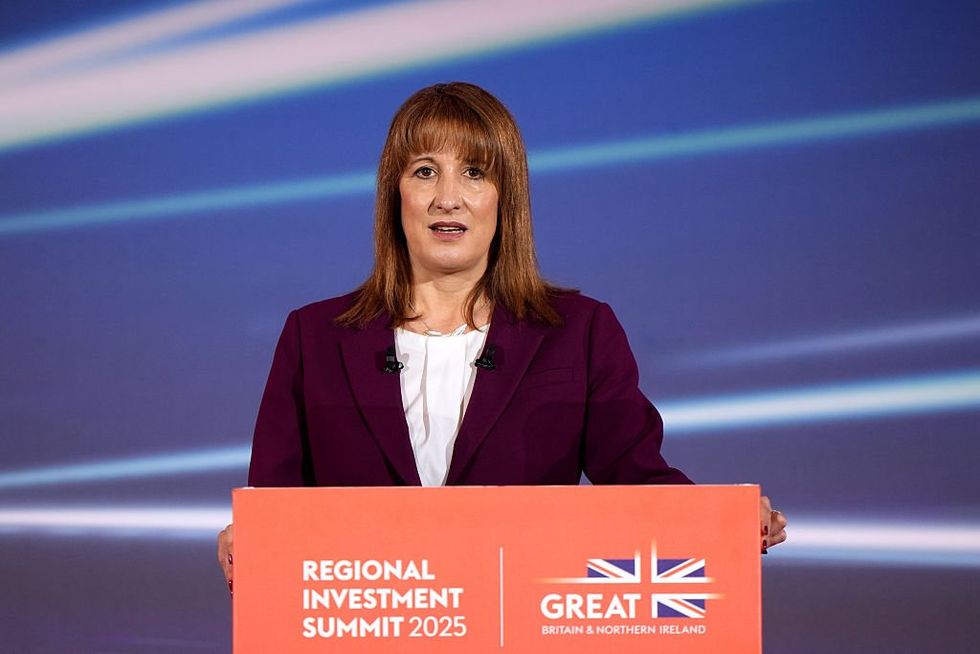Britain’s borrowing has risen faster than any other major developed country over the past 20 years, according to new figures from the International Monetary Fund (IMF).
The UK’s net public debt has increased by 57.5 percentage points since 2005 – almost double the average rise of 28 per cent seen across other advanced economies.
This surge has pushed Britain’s total debt to around 97 per cent of the size of the economy, the highest level in more than 60 years.
Experts say the sharp rise is the result of several major shocks, including the 2008 financial crisis, Covid support schemes, energy bill subsidies, and higher interest payments as government borrowing costs have climbed.
The UK now spends around £100 billion a year on debt interest, more than it spends on defence, leaving less room for new tax cuts or public investment ahead of the next Budget.
Only Spain, with a 54.1 per cent increase, and the United States at 53.7 per cent have experienced debt growth approaching Britain’s scale. Meanwhile, numerous advanced economies have achieved substantial reductions in their debt positions.
Norway has slashed its net debt by 119 per cent, whilst Switzerland, Canada and Sweden have reduced their burdens by 25 per cent, 16 per cent and 14.6 per cent respectively. Among major European nations, France’s debt expanded by 48 per cent and Italy’s by 29.7 per cent, whilst Germany limited its increase to merely 8.5 per cent.
Even nations traditionally carrying heavy debt loads, including Portugal at 28.3 per cent, have witnessed more modest growth than Britain. The stark contrast underscores how the UK has become increasingly reliant on borrowing compared to its international counterparts.
The nation’s debt mountain has ballooned to between £2.7trillion and £2.9trillion, according to separate analyses, representing nearly triple the level from two decades ago. Annual interest payments on this borrowing now exceed £100billion, surpassing the entire defence budget.
 Economy warning: Debt crisis ‘something to be concerned about’ as UK borrowing grows faster than any advanced nation |
Economy warning: Debt crisis ‘something to be concerned about’ as UK borrowing grows faster than any advanced nation |
GETTY
The Office for Budget Responsibility projects that debt will continue climbing until 2026 before reaching a plateau. The IMF has cautioned that without improved economic growth or spending constraints, Britain’s debt trajectory risks becoming “unsustainable” over the medium term.
This fiscal burden leaves the Chancellor with minimal flexibility as she prepares for the upcoming Budget. The sheer scale of accumulated debt means servicing costs alone consume a significant portion of government resources, constraining options for public spending or tax adjustments.
Economists have expressed alarm at Britain’s fiscal trajectory, with Michael Saunders from Oxford Economics stating: “It’s something we should be concerned about. We do stand out, and not in a good way. The extent to which UK debt has risen is part of the cause of high UK yields.”
Financial analysts warn that Britain risks entering a “doom loop” where elevated debt servicing costs combined with sluggish growth compel the Chancellor to implement tax increases, which subsequently harm economic performance and necessitate further revenue-raising measures.=
LATEST DEVELOPMENTS:
 Rachel Reeves will deliver the Budget in November | GETTY
Rachel Reeves will deliver the Budget in November | GETTYThe UK already faces steeper borrowing costs than several competitors including France and the United States, despite maintaining lower overall debt levels.
This disparity reflects investor apprehension about Britain’s fiscal position, with 30-year borrowing costs briefly reaching a 27-year peak in September.
Rachel Reeves confronts significant constraints as she finalises her Budget plans, with City analysts anticipating tax measures comparable to last year’s £40 billion revenue-raising package alongside continued substantial borrowing.
Matthew Beesley, chief executive of Jupiter Fund Management, urged decisive action, warning: “The Government both needs to raise taxes and or cut spending and both are likely to be negative from a growth perspective but what is probably more damaging is doing neither.”

Cambridge University economics professor Jagjit Chadha described the debt surge as evidence of political failure
|
GETTYHe advocated for bold measures to resolve fiscal uncertainties permanently, stating: “This needs to be resolved so we don’t end up every October and November having a debate about spending or tax raises to plug a perceived budget deficit. We need bold action that takes this off the table.”
Cambridge University economics professor Jagjit Chadha described the debt surge as evidence of political failure, declaring: “We can now see clearly how the fiscal framework has clearly failed and debt-GDP has not been placed on a sustainable path.
“It is time to end the farrago surrounding our fiscal events.”
